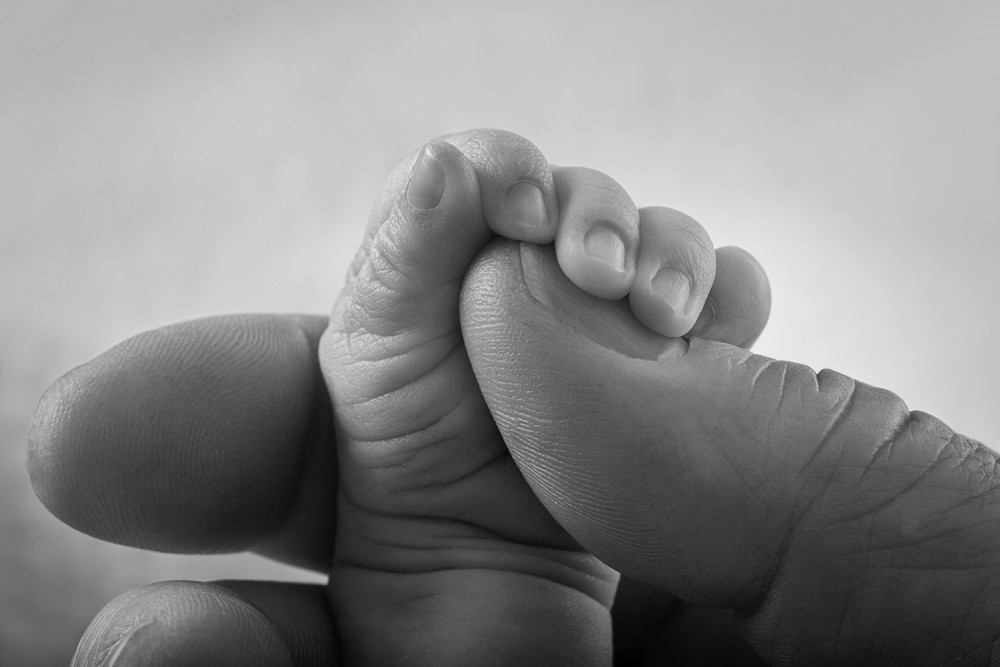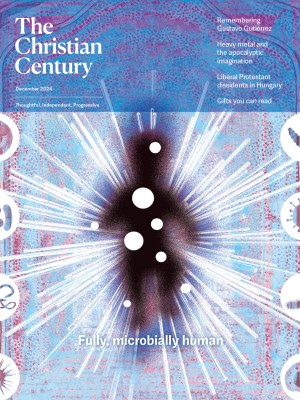
(Photo by ssucsy / E+ / Getty)
Christmas is charged with meaning, both good and bad. For so many of us, it is a locus of vulnerability and pain. I think that truth has been tattooed on my heart since my father died suddenly on Christmas Day 2021. Christmas will never be the same again. Others have their own reasons for quietly dreading the season. For some of my LGBTQ friends Christmas is painful because it reminds them that they’re estranged from family. So many of us have reasons for not wishing to dwell too deeply on this feast.
Yet behind all the human failures, losses, and challenges—and sometimes precisely because of them—the festive season can bring the story of God alive in quite startling ways. Christmas is the festival of the Holy Family and, most particularly, God the child, especially God the infant. While the Holy Family and the Christ Child so often have been idealized, they also model vulnerability, dependency, and relationship. Behind every tinseled image of “Christ Adored” is the story of a mother giving birth to a child in a time when childbirth was defined by risk and precariousness.
Read our latest issue or browse back issues.
I think that part of what mesmerizes me about Christmas is the way its focus on divine childhood and family refracts and amplifies our own human negotiations with family and childhood, with all the mess and complexity they bring. It is the festival where all that is least grown-up within us—our delight in gifts, the love of sentiment, and, yes, sometimes our rehearsals of toxic family dynamics—surfaces and is granted free rein.
What if that least grown-up part of us can be a site of real hope and promise, indeed, of meeting God afresh as if for the first time? The question makes me feel a little uncomfortable. I suspect that discomfort reflects the simple fact that I spend so much of my time in grown-up mode: in my day job as a Church of England archdeacon, I deal with the fallout from human weakness and failure. Sometimes I am required to be the grown-up in the room. This role can lead to a jaded, hard-boiled, and deeply pragmatic outlook on faith and life.
Christmas, with its focus on vulnerability and gift, can be not only a corrective to an overweening sense of the goodness of being an adult but specifically a reminder of God’s hallowing of that most dependent mode of being human: infancy. In his recent book God the Child, liberation theologian Graham Adams argues that the church is impoverished by its unwillingness truly to embrace pictures of God framed through the lens of childhood. Ironically, he suggests the people of God would be more mature if only we could properly rejoice in God as child. For Adams this is not simply about God as “transitional” child, the God in Christ who grows from baby to adult. It’s about asking what happens to our pictures of God if we see him as forever a child.
This is a provocative idea, too large to unpack here, but here is one line of enquiry. Adams argues that children always offer a powerful and subversive model of leadership: because children are small and relatively weak, they must use different strategies than adults use to thrive. Solidarity, friendship, and kindness become primary virtues. Children, he says, show us the ways of God.
I love this idea of God as “most God” when he is small. I’ve spent much of my life being struck by images of God modeled in songs like “My God Is So Big, So Strong, and So Mighty.” And when we feel powerless or marginal—as I often have as a trans woman in an institution like the church—such an image is attractive, perhaps even unavoidable. Many have taken comfort and strength in God the almighty and all-knowing Father.
Adams, however, says such a God is a “giant” who is, by turns, impressive, overwhelming, and—given giants’ capacity to crush the tiny underfoot—someone we want on our side. This giant God can buttress and bolster imperial and patriarchal versions of the church. Neither Adams nor I am so naive as to pretend that children aren’t capable of cruelty, selfishness, or lying. However, in its very inability to appear godlike, children’s leadership reveals to me more about God and his priorities.
Thus, we come to the Christ Child, the very presence of God revealed at Christmastime. This is a vision of God as utterly dependent and without the means to cajole or control or direct beyond his gift for eliciting love. It is Christ’s very vulnerability and need, in virtue of being a baby and infant, that calls to us. There is surprise inscribed in this God and Savior whom we might expect to come among us in glorious power, weapons ready and an army at his behest to tear down the powers and principalities. The gift of God is instead an invitation into relationship and solidarity. To allow his vulnerability to liberate us so that we might be unafraid to dwell in ours.
Like Graham Adams I want—not only at Christmas but perhaps especially in this season—to offer the weakness and smallness of God the child, the infant, as an alternative picture of God’s omnipresence: in being small, God can genuinely be everywhere. He can get into the gaps and be in the places that the powerful ignore. God in Christ reaches up and offers open hands to us rather than our human, adult love of closed fists and power handshakes. The Christ Child’s openness exposes how often our adult hands are closed off from loving relationship and promise. Christ, I sense, invites us not only to be childlike but to embrace our childness. Given where we’ve got to as a church, maybe it’s time for us to give it a try.







